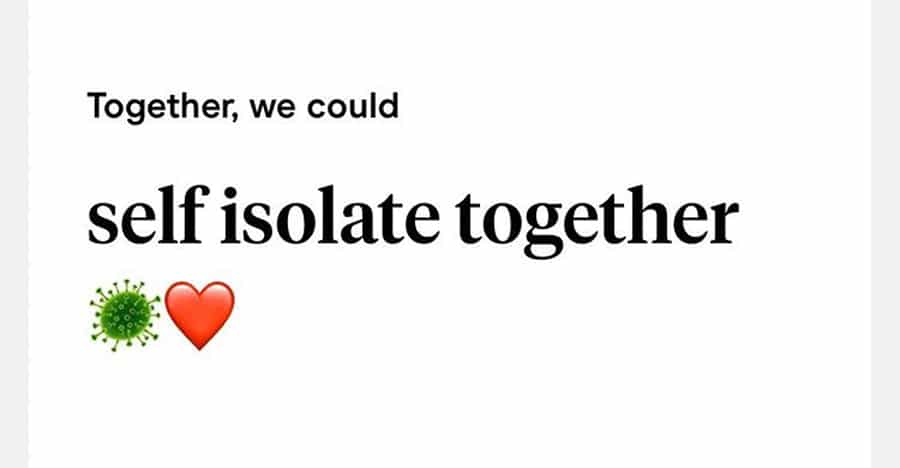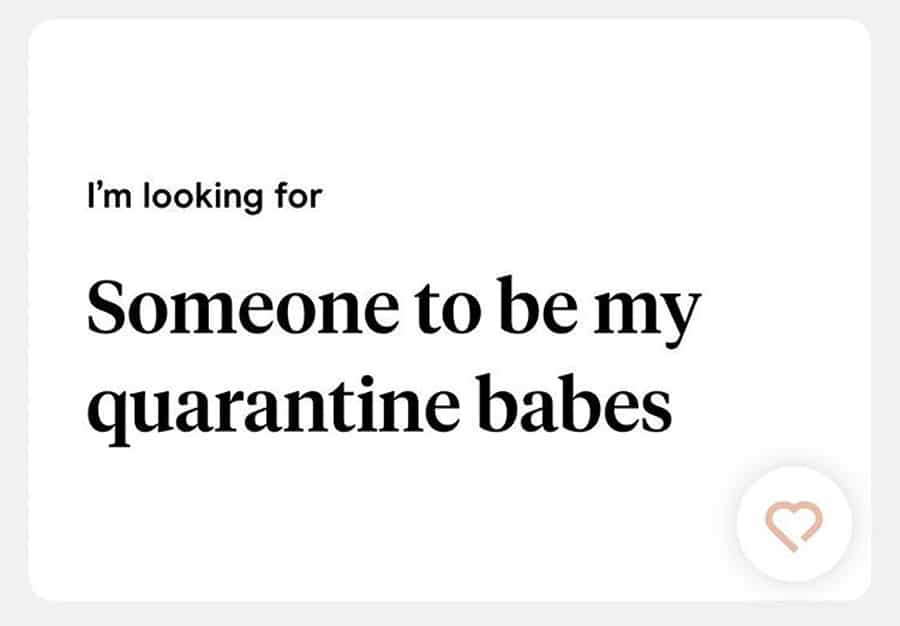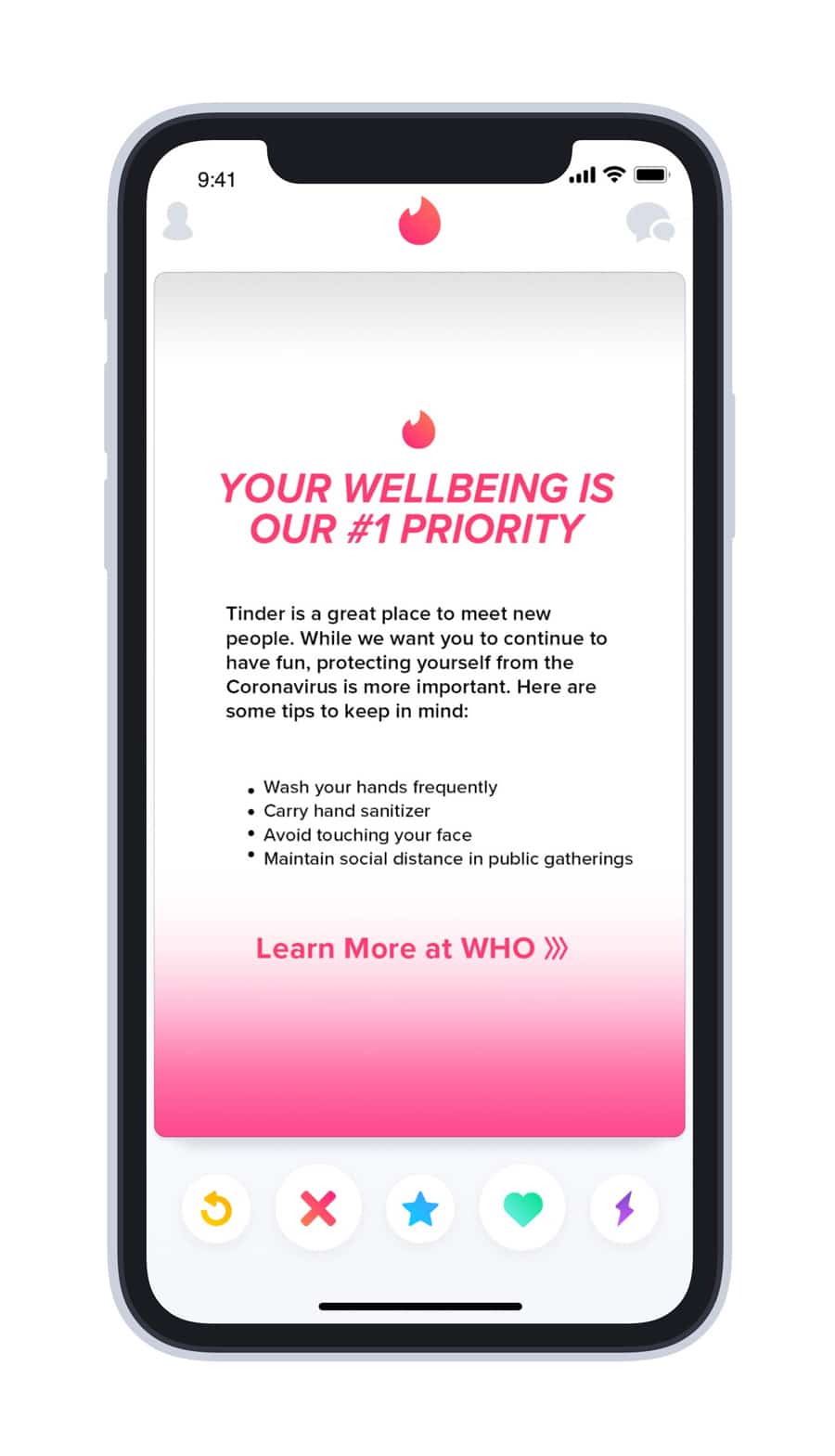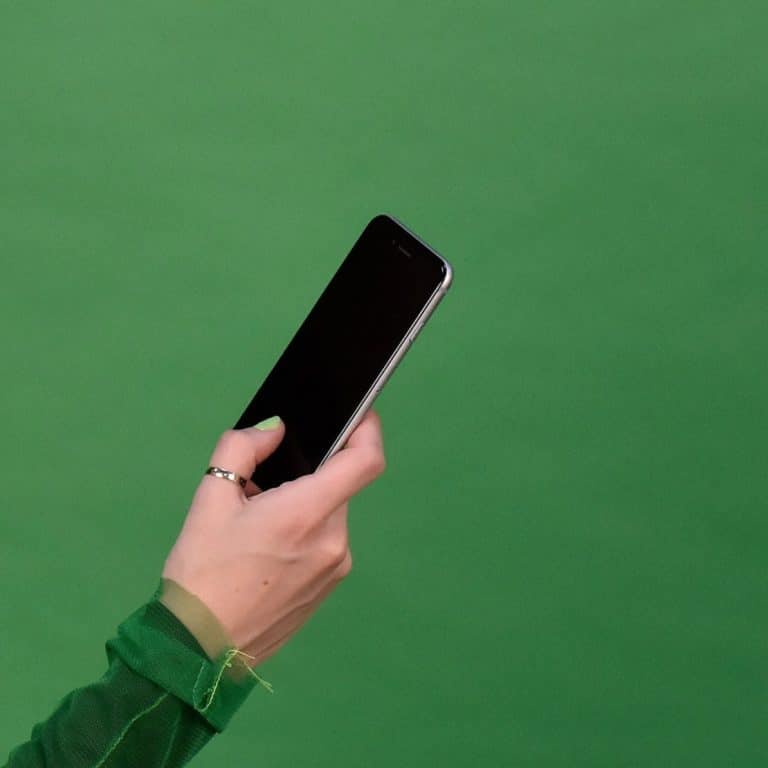How we should use dating apps during a coronavirus pandemic
The coronavirus outbreak is only now starting to seriously affect the UK and the US, and everyone is panicking. Here I am, working from home during what seems to be the end of the world. People are scared, confused and unsure about what lies ahead. Have we got enough food in the house? Am I really going to do all my meetings through video calls for the next month? Even worse, am I really going to be unable to date people for a whole month?
Reaching ultimate boredom because you’re stuck in the house is one thing; self-isolating and therefore missing out on many great dates—and, potentially, great sex—is another thing. Here’s how the coronavirus is impacting our dating lives and what you can do to make things just a tiny bit better.
Speaking with some friends about whether or not they were still using dating apps and if so what for, one just stated what should have been obvious to me: “it’s making people horny innit.” Well, it turns out it actually is. Hinge has become the ‘place to be’ for thirsty coronavirus pick-up lines. Tinder is kindly asking its users to wash their hands and avoid touching their face—let alone go any further than chatting through the app. People are home, bored and swiping through profiles just to get a distraction from our constant anxiety-inducing pandemic newsfeed.


Add self-isolation to general public health concerns, and people feel lonely, panicked and desperate for some company. Friends that were ‘on the market’ for a few months have decided to delete their dating apps completely, justifying this by explaining that opportunities are much slimmer and that nobody seems to be talking about anything else at all. “Dating during a pandemic is just… different,” said one.
Screen Shot spoke to a Tinder spokesperson about how the app was approaching the outbreak and what measures it was taking to inform people to stay safe. “Tinder understands that our members are oftentimes meeting new people in-person, and given the current environment, we wanted to remind them of the precautions they should take. All of the suggestions shared are from the World Health Organization, and we are making it easy for everyone on Tinder to find out more by linking directly from the app to the WHO site.” In other words, at the moment, there’s not much the app can do apart from encouraging people to avoid meeting for dates.

However, while it looks like regular activity is continuing on Tinder, the dating app just recently had to cancel the release of its apocalyptic-themed in-app video series called Swipe Night. The company had planned to release the first season of the show offering a five-minute interactive story where users made choices to progress the narrative. These choices would then appear on the users’ profiles and would be used to match them with others who also took the same action. Apocalyptic theme put aside, this actually sounded like a good distraction. Another one bites the dust.
The same can be said for other dating apps such as Bumble, Hinge and Grindr. And while the reasons behind this drought are more than justified, FaceTiming matches and having phone sex might not cut it.
That’s where Feeld comes in. For those of you who haven’t heard about it before, Feeld is a dating app for people interested in polyamory, kink, swinging and other alternative sexual preferences. Speaking to Feeld’s head of PR Lyubov Sachkova, Screen Shot asked about the app’s new way of facilitating intimate interactions. “Being online is what everyone seems to be doing now, more so than ever. What that means for dating is that while people might not be meeting in real life they still would want to connect with like-minded individuals and create connections, chat and get to know one another,” explained Sachkova.
So what is Feeld doing better than the rest of our dating apps? It is introducing a feature that will actually relieve us from our self-isolating horny state. “We recently launched a project titled For Play where you can digitally touch, tease and flirt with others”. If you decide to enter the For Play universe, you will be transformed into a floating avatar that both mirrors and completely abstracts your features. Your ‘orb’-like avatar is then assigned to a digital room where you can play with up to three other live participants.
What’s the deal, some of you might ask. “We are aiming to create a multi-sensory digital experience that stimulates sight, touch and hearing. So hopefully in this time of social distancing we can still feel the positive effects of human touch even if only digitally for now.” While we’re all stuck inside losing our mind over the tiniest thing only because we can’t deal with being isolated for more than two days, For Play gives you the chance to get a tiny bit of gratification and thrill over bumping your orb against someone else’s—sounds dirty, I know.
What we can take away from this is that dating will not be the same for a little while. Whether you decide to keep on using dating apps to chat online or have already deleted Hinge from your phone, we can all agree that self-isolation is, technically, making meeting new people harder for everyone. It’s all about your determination now. Are you willing to date through FaceTime? If not, For Play seems like the safest (and funnest) option.
So, what are you waiting for? Want to bump your orb against mine? Just make sure you wash it first.






